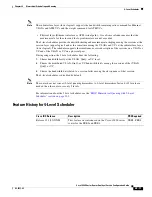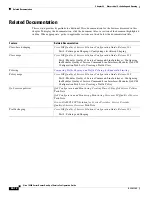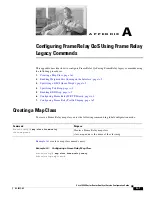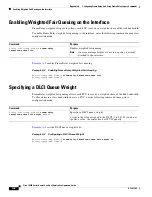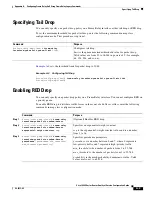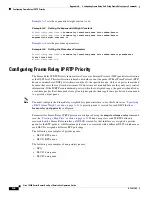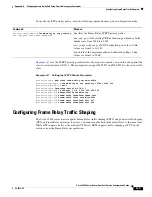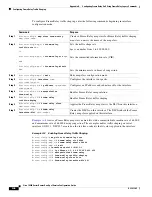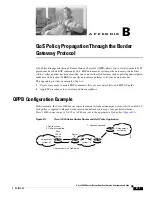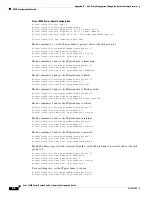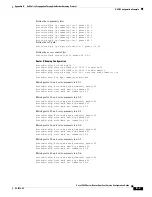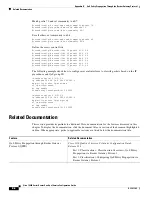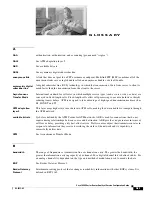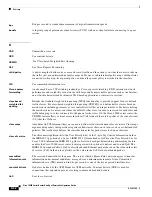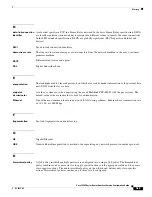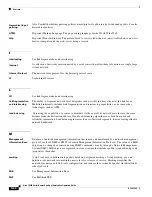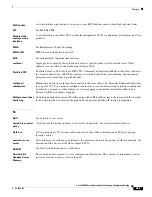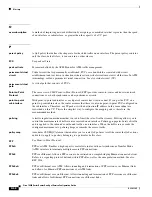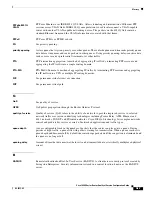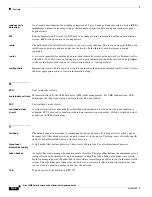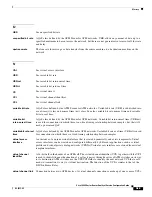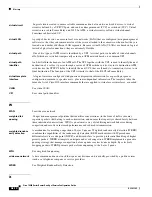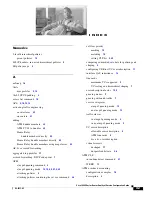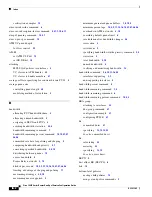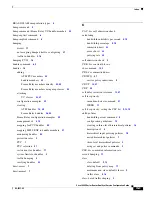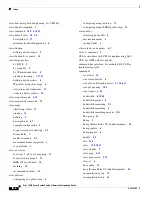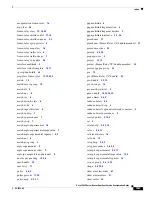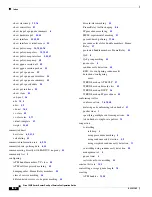
Glossary
GL-3
Cisco 10000 Series Router Quality of Service Configuration Guide
OL-7433-09
D
data-link connection
identifier
A value that specifies a PVC in a Frame Relay network. In the basic Frame Relay specification, DLCIs
are locally significant (connected devices might use different values to specify the same connection).
In the LMI extended specification, DLCIs are globally significant (DLCIs specify individual end
devices).
DLCI
See data-link connection identifier.
downstream rate
The line rate for return messages or data transfers from the network machine to the user’s customer
premises machine.
DSCP
Differentiated service code point.
DSL
Digital Subscriber Line.
E
encapsulation
The technique used by layered protocols in which a layer adds header information to the protocol data
unit (PDU) from the layer above.
endpoint
discriminator
A value a system uses when negotiating the use of Multilink PPP (MLP) with the peer system. The
default value is the username that is used for authentication.
Ethernet
One of the most common local area network (LAN) wiring schemes, Ethernet has a transmission rate
of 10, 100, or 1000 Mbps.
F
fragmentation
See link fragmentation and interleaving.
G
GE
Gigabit Ethernet.
GRE
Generic Route Encapsulation. A method of encapsulating any network protocol in another protocol.
H
hierarchical policy
A QoS policy in which multiple policies are configured into a single QoS policy. The hierarchical
policy combines one or more classes to apply specific actions on the aggregate traffic and to execute
class-specific actions. The non-hierarchical policy, on the other hand, defines only class-specific
actions. Hierarchical policies can have up to three levels configured.

